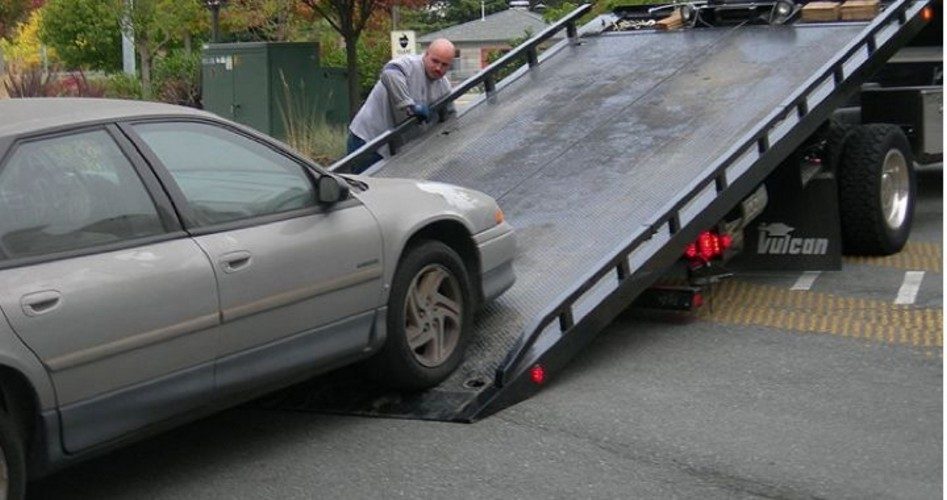
Last week, the House Judiciary Committee approved by voice vote a bill to make it harder for law enforcement to confiscate the property of innocent Americans and easier for victims of such confiscation to recover their property.
The bill, named the Deterring Undue Enforcement by Protecting Rights of Citizens from Excessive Searches and Seizures (DUE PROCESS) Act, would curb some abuses of federal civil asset forfeiture laws. Such laws, observed the Milwaukee Journal Sentinel, “seem[] to turn most common perceptions of due process on their head. The laws allow police to seize property that they suspect is connected to crime. Then it’s up to the owners — through a time-consuming and expensive legal process — to prove that the property is not criminally tainted.”
First and foremost, the DUE PROCESS Act would increase the standard of evidence required for asset forfeiture. Currently, authorities need only show that a preponderance of the evidence points to the likelihood that the property was involved in the commission of a crime before they can seize it. Under the DUE PROCESS Act, they would have to demonstrate by “clear and convincing evidence” that “there was a substantial connection between the property and the offense” and that the owner of the property either intentionally used the property in the commission of the offense or knew that it was being used to commit the offense.
The bill also gives owners of confiscated property a much better opportunity to recover it. It requires speedier notification of seizures, guarantees owners a right to counsel, and enables victorious owners to recover their legal fees.
In addition, the bill makes the public more aware of how federal asset-forfeiture laws are being employed. It requires an annual audit of a sample of forfeiture cases, and it creates two databases with information on forfeitures and the agencies and alleged offenses involved.
“Civil asset forfeiture is an important piece of the overall effort to reform our criminal justice system, and the Due Process Act makes common sense changes to federal forfeiture laws that help innocent Americans,” Representative James Sensenbrenner (R-Wis.), who introduced the bill, said in a Judiciary Committee press release. “Its passage out of the House Judiciary Committee is a significant step forward in the process, and I’m confident that it will soon be passed in a full House vote.”
Although a number of states — Ohio being the latest — have passed asset-forfeiture reforms recently, the federal government hasn’t modified its forfeiture laws to the good since 2000, when some tepid reforms were introduced. Meanwhile, noted Americans for Tax Reform (ATR), “From 2004 to 2014, the amount of money taken by federal law enforcement increased from under $1 billion to over $5 billion. This represents a significant amount of unaccountable money with little oversight from elected officials to be freely spent by the agencies that confiscated the assets.”
“For an unusual process whereby the government may seize and forfeit someone’s money, car, or other assets they need to sustain themselves, the standard should be higher” than that set by the 2000 law, Representative Sheila Jackson Lee (D-Texas) asserted. “We must ensure that the federal laws that allow for the forfeiture of money and other assets include the necessary protections to ensure the innocent do not suffer from wrongful confiscation. That is why I support this bill and urge my colleagues to do the same and look forward to its passage on the House Floor.”
Groups from across the political spectrum have endorsed the DUE PROCESS Act.
“The rights to private property and due process are precious freedoms that must be protected. Current federal civil asset forfeiture laws do not offer adequate protections for innocent property owners and have resulted in documented cases [of] abuse by overzealous law enforcement agencies at every level of government,” FreedomWorks director of communications Jason Pye said in a statement. “The Due Process Act is an important step forward in addressing the serious problems with federal forfeiture laws.”
ATR also gave a thumbs-up to the bill, saying, “Federal asset forfeiture must be changed, and the DUE PROCESS Act is a step in the right direction.”
And the American Civil Liberties Union offered “qualified support” for the bill as “an important first step, offering substantial procedural protections for those subjected to forfeiture.”
All three, however, pointed to one gaping hole left open by the act: the Justice Department’s “equitable sharing” program, whereby local law-enforcement agencies join with federal agencies to seize assets under federal law, with the local agencies keeping the lion’s share of the proceeds. Attorney General Loretta Lynch announced that the program was ending late last year, but it was reinstated in March.
This program, whose take has grown from $94 million in 1986 to $4.5 billion in 2014, has two major negative effects. First, it gives law enforcement a huge profit incentive to seize assets. Second, it offers state and local agencies an end run around their states’ forfeiture reforms, as The New American’s Steve Byas explained:
By using the “adoptive forfeiture” feature of the law, local and state law enforcement can avoid the higher burden of proof (beyond a reasonable doubt) and various other restrictions some state legislatures have been enacting. Even simple possession of marijuana, a federal crime, can lead to assets being forfeited to the feds.
The program appears untouchable at the present time. Senator Rand Paul (R-Ky.) has twice introduced the Fifth Amendment Integrity Restoration (FAIR) Act, which is similar to the DUE PROCESS Act but includes abolition of the equitable sharing program. That bill has gone nowhere thanks to congressional fear of “backlash … from law enforcement,” according to FreedomWorks.
In a world where the government obeyed the Constitution, of course, there would be no civil asset-forfeiture laws, period. “Civil asset forfeiture,” wrote Byas, “is an assault upon the very concept of private property and the legal position that an accused person is innocent until found guilty beyond reasonable doubt.” As such, it violates the Fifth Amendment’s requirement that an individual not be “deprived of … property without due process of law.” Moreover, federal civil asset-forfeiture is one of the many egregious outgrowths of the unconstitutional federal war on drugs.
As long as we live in this imperfect world where asset forfeiture continues to be the law of the land, however, anything that helps to reduce its frequency is to be applauded. What the lawmen lose in loot, the rest of us gain in liberty.



